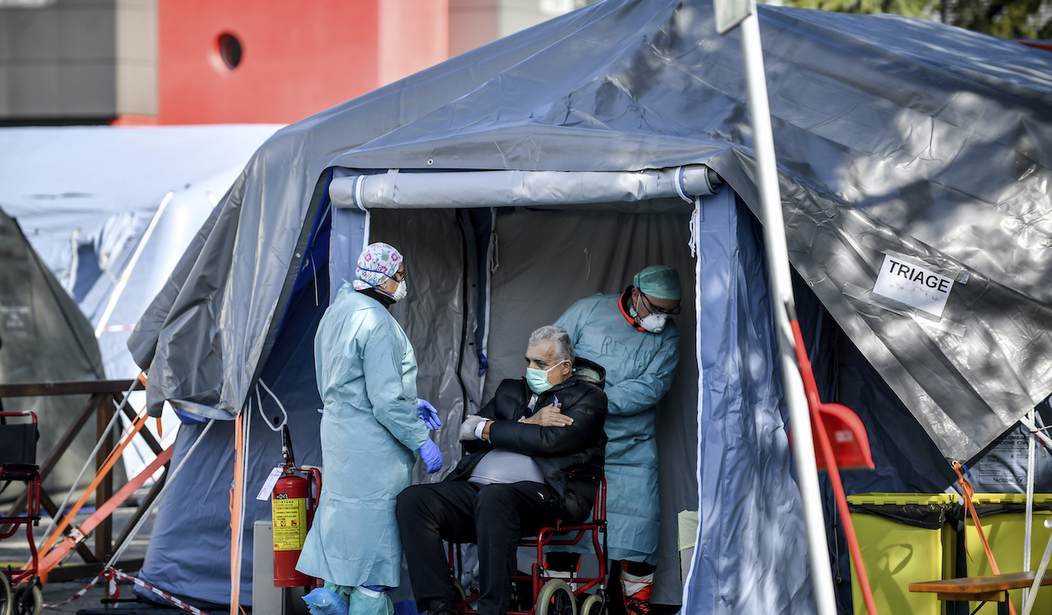In his 2004 book, “Against Leviathan – Government Power and a Free Society,” Robert Higgs explains how our federal government has transformed from one of “defined and limited” powers as envisioned by our Founders, into one driven by a “Crisis Constitution.” As Higgs clearly establishes, we are living in “an age of permanent emergency.”
The still-developing COVID-19 pandemic illustrates that this “emergency” mindset today is directing the hands of government leaders, not only in our nation’s capital, but in statehouses and city councils across the country.
It is by now clear that the COVID-19 pandemic represents a serious health problem. At a minimum, individuals should be heeding common sense hygiene rules ranging from the personal – washing hands frequently – to the socially interactive – minimize contacts with high-risk populations such as the elderly and infirm.
From a regulatory and resource management standpoint, President Trump and governors across the country are directing and implementing appropriate and much-needed measures to reduce red tape and make additional funds available, thereby helping government agencies and private businesses to better meet the challenges posed by this “novel” virus.
Actions that bear a direct and reasonable relationship to the health crisis posed by the virus, and which are undertaken by government and private-sector entities in response thereto, make sense and are appropriate in current circumstances, even if they minimally or tangentially impact individual liberties guaranteed by our Constitution.
Recommended
Beyond such steps – when we enter the realm of far-reaching and vague “emergency” declarations that go beyond any reasoned relationship to containing and defending against the virus – we find ourselves in the dangerous territory described by Higgs. It is this crisis-driven environment in which even the Supreme Court of the United States has declared more than once that, “[we] must surrender or forgo [sic] exercising rights which in other times could not be impaired.”
In earlier times, government power grabs would be met with at least a noticeable degree of critical debate. Not so in our post-911 world. In fact, in recent days “emergency” steps already taken by state and local, and especially the federal governments, are being criticized openly as being inadequate, with many pundits and commentators demanding that more and further draconian restrictions on individuals and businesses be implemented.
In this environment, Nanny State officials, ever eager to expand their turf, have seized on the COVID-19 pandemic to justify expanding power in areas they have long sought to control, most notably, 2nd Amendment rights. For example, a new COVID-19 declaration by the Mayor of Champaign, Illinois includes the power to ban the sale of firearms, ammunition, alcohol, and gasoline, as well as confiscate and take ownership of any private property.
In this latest crisis, as in earlier ones, cries for governments at all levels “to do something” quickly drown out reasoned warnings that many such measures go beyond constitutionally permissible bounds, even past boundaries that routinely have been expanded by presidents, legislators, and judges fearful that if they do not heed calls “do something” they will be blamed if further problems occur.
The Pandora’s Box is opened wider with each new “crisis.” Each time bites are taken out of our constitutionally guaranteed rights, it sets precedent for government officials that follow. Champaign’s Mayor today can point to similar gun control edicts issued previously by other local officials – New Orleans in 2005 and the U.S. Virgin Islands in 2017 – as a precedent for her gun confiscation power in 2020.
The “National Emergencies Act” cited by Trump last week in his federal declaration places at Uncle Sam’s fingertips a range of powers that potentially limit virtually every activity in which an individual or business might engage, from banking and travel, to use of the internet. State and local “emergency” declarations, of course, add to restrictions on individual liberty imposed by the president’s declaration of a “national emergency.”
Compounding the constitutional infirmities with contemporary “emergency declarations" is the fact that the strictures being imposed on citizens throughout the country are founded not on any clear definition or understanding of what actually constitutes an “emergency," the term is nowhere in law clearly defined. Sadly, it appears far more important to most Americans these days for government to “do something” than it is for government to do something constitutional.

























Join the conversation as a VIP Member